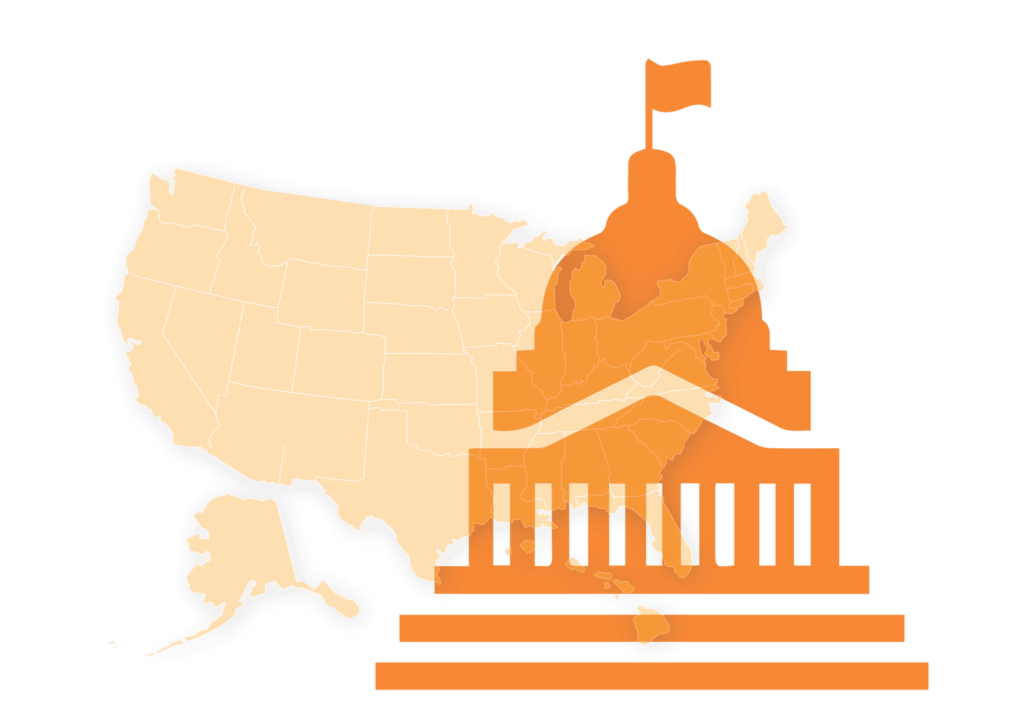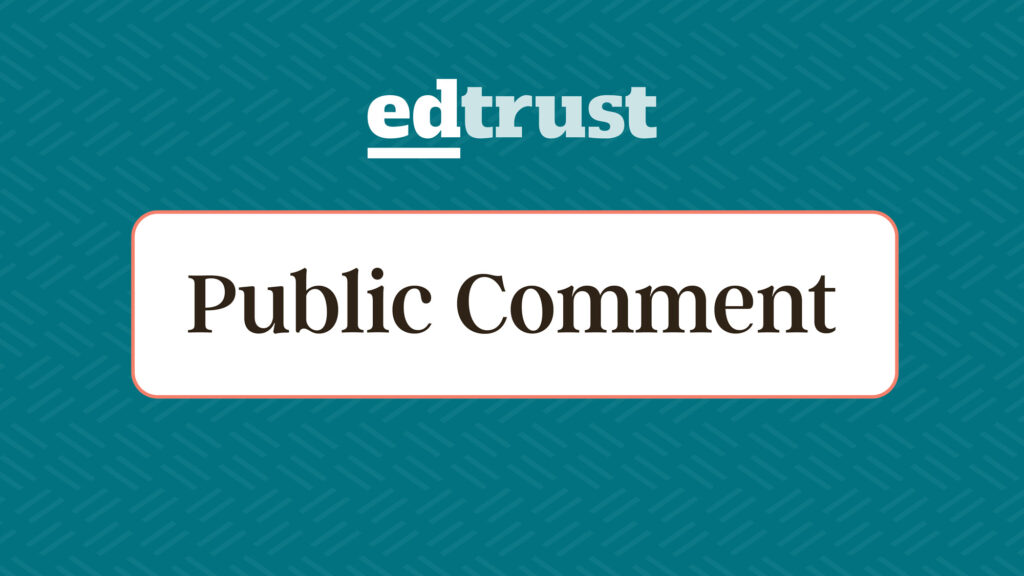Dear Leader McConnell, Speaker Pelosi, Leader Schumer, and Leader McCarthy:
States, school districts, principals and teachers are committed to serving all students who need supports in our schools no matter which school they attend, including through equitable participation of students in non-public schools in accordance with the current Title I law. Unfortunately, recent actions by the U.S. Department of Education (USED or Department) regarding equitable services for non-public schools under the Coronavirus Aid, Relief, and Economic Security (CARES) Act have undermined this principle and created enormous confusion and caused unnecessary delays in getting emergency education funds to schools. In passing the CARES Act, Congress sought to quickly provide federal support to those sectors most affected by the coronavirus pandemic. With at least 124,000 K-12 schools closed across the country, affecting more than 55 million students, America’s schools are in a precarious position and in desperate need of federal support to prevent educational hardships of historic proportions that would affect the country for decades to come. We urge Congress to swiftly reinforce its intent pertaining to Section 18005(a) of the CARES Act by passing legislation rescinding the equitable services guidance, preempting any future notice from USED that is contrary to the legislation, and further clarifying the allocation requirements for equitable services for nonpublic schools consistent with Title I.
USED released guidance on April 30, 2020, that misinterprets how equitable services funding for non-public schools under the CARES Act should be apportioned. The CARES Act includes approximately $13.23 billion for an Elementary and Secondary School Emergency Relief (ESSER) Fund, which is to be allocated to state and local education agencies (SEAs and LEAs) proportionate to their share of Title I, Part A funding in the prior fiscal year. Section 18005(a) of the CARES Act definitively states that an LEA receiving funds under ESSER, as well as under the Governor’s Emergency Education Relief (GEER) Fund, must provide equitable services to students and teachers in non-public schools “in the same manner as provided under section 1117 of the ESEA of 1965.” Section 1117(a)(4)(A) of ESEA is similarly explicit: “Expenditures for educational services and other benefits to eligible private school children shall be equal to the proportion of funds allocated to participating school attendance areas based on the number of children from low-income families who attend private schools.”
Yet the Department’s April 30 non-regulatory guidance disregards Congress’ clear mandate in Section 1117 that the number of low-income students attending non-public schools in the LEA
should serve as the basis for how equitable services are allocated. Instead, the guidance introduces the idea that the apportionment should be based on the total number of students enrolled in non-public schools in the LEA. This not only misinterprets the CARES Act statute, it contradicts well-established interpretations by USED, including as recently as October 2019, that equitable services allocations should be based on the number of low-income students in nonpublic schools from a particular LEA under section 1117(a)(4)(A)(i) and (c)(1).
Over many decades, USED’s rationale for its interpretation of the equitable services allocation for students and teachers in non-public schools has been straightforward: because an LEA’s Title I allotment is based on the total number of low-income students, whether attending public or non-public schools, the equitable services allocation should also be based on the number of lowincome students attending non-public schools from the particular LEA. In effect, the share of low-income students attending non-public schools is used to generate an LEA’s overall Title I allocation; accordingly, that same metric should be used to calculate equitable services.
To be clear, we strongly supported the CARES Act with equitable services provisions included and believe that eligible students in non-public schools should receive additional support through the CARES Act. What we don’t believe is that all students, at any non-public school, regardless of their family’s wealth or the size of their school’s endowment, should generate funding help in the same way as disadvantaged students, particularly when that aid comes at the cost of those less advantaged children.
The current crisis has caused enormous disruptions in learning for our students, heightening the urgency to reach and support them at this critical time. We remain concerned that absent congressional action clarifying congressional intent around equitable services, the Department’s guidance, coupled with its stated intention to promulgate a rule on the issue, will continue to undermine the efforts of state and local education leaders and further delay the disbursement of these critical relief funds. Education leaders are working tirelessly to ensure that the educational and mental health needs of students are being met during this crisis, but federal support is still urgently needed. We look forward to working with you to provide a quick solution that ensures CARES Act funds are disbursed in the way that Congress intended.
Sincerely,
AASA, The School Superintendents Association
Alliance for Excellent Education
American Association of Colleges for Teacher Education
American Council of School Social Work
American Federation of School Administrators
American Federation of Teachers
American Music Therapy Association
American Physical Therapy Association
American School Counselor Association
American Speech-Language-Hearing Association
ASCD
Association of Educational Service Agencies
Association of School Business Officials International
Children and Adults with Attention-Deficit/Hyperactivity Disorder
Communities In Schools National Office
Council of Administrators of Special Education
Council of Chief State School Officers
Council for Exceptional Children
Council of Great City Schools
Council for Learning Disabilities
EDGE Consulting Partners
GLSEN
Higher Education Consortium for Special Education
National Association of Councils on Developmental Disabilities
National Association of Elementary School Principals
National Association of ESEA State Program Administrators
National Association of School Psychologists
National Association of Secondary School Principals
National Association of State Boards of Education
National Association of State Directors of Special Education
National Center for Learning Disabilities
National Center for Parent Leadership, Advocacy, and Community Empowerment
National Center for Special Education in Charter Schools
National Disability Rights Network
National Education Association
National Forum to Accelerate Middle-Grades Reform
National Indian Education Association
National PTA
National Rural Education Advocacy Consortium
National Rural Education Association
National School Boards Association
New America, Education Policy Program
New Leaders
School Social Work Association of America
Teacher Education Division of the Council for Exceptional Children
The Advocacy Institute
The Arc of the United States
The Education Trust
The Expectations Project
TNTP

 June 04, 2020 by
June 04, 2020 by 



